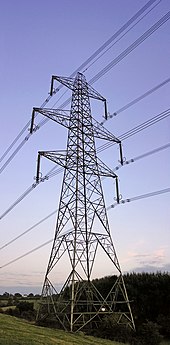
Energy liberalisation refers to the liberalisation of energy markets, with specific reference to electricity generation markets, by bringing greater competition into electricity and gas markets in the interest of creating more competitive markets and reductions in price by privatisation.[1] As the supply of electricity is a natural monopoly, this entails complex and costly systems of regulation to enforce a system of competition.[2]
A strong drive for liberalisation occurred in European Union energy markets at the turn of the millennium, directed by European Commission directives favouring market liberalisation promulgated in 1996, 2003, and 2009.[2][3][4] These programmes were supported with the interest of increasing the interconnectedness of European energy markets and building the common market.[1][3] Similar initiatives, to varying degrees, have been pursued in nations around the world, such as Argentina, Chile, and the United States.[5]
- ^ a b energy-liberalisation from Financial Times Lexicon (archived on 9 Aug 2016)
- ^ a b Cite error: The named reference
thomas2004was invoked but never defined (see the help page). - ^ a b Cite error: The named reference
eu_liberation_overviewwas invoked but never defined (see the help page). - ^ Cite error: The named reference
eu_directive_2009was invoked but never defined (see the help page). - ^ Cite error: The named reference
:2was invoked but never defined (see the help page).